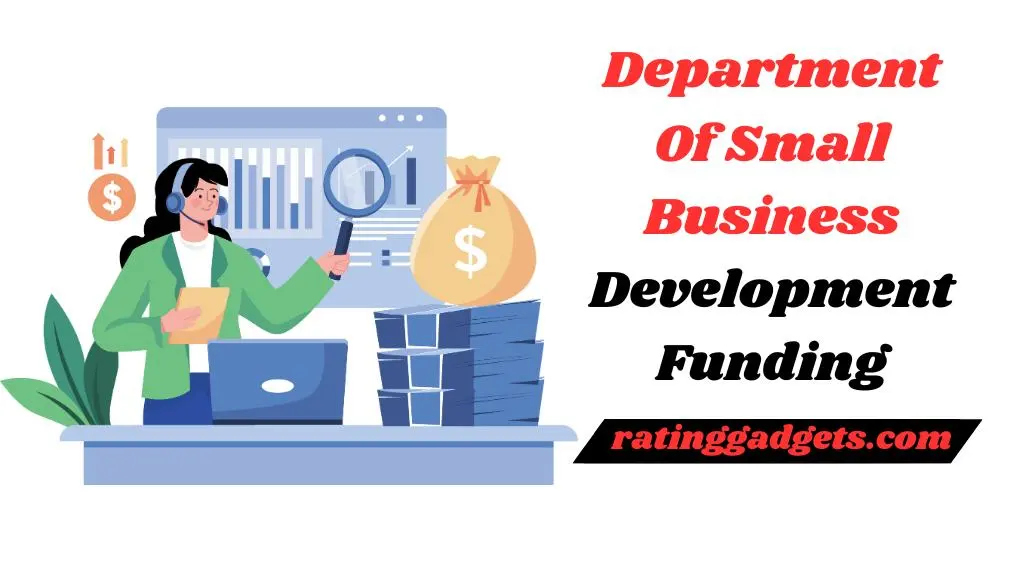
Department Of Small Business Development Funding
For a small company, there are several costs like inventory acquisition, market trend research, and new product testing. But if you have not started selling, how will you generate income?
While seasoned small company owners might have a network of bankers, getting money before you have an opportunity to establish yourself might be difficult for startups.
When they want a financial boost, many business owners think about applying for a small business loan or line of credit. Still, depending on your particular circumstances, a business grant might be more enticing than traditional sources of finance.
Regarding grants for small enterprises, even if it would appear that nothing in our world is free—that is not always the situation.
Department Of Small Business Development Funding
From a few hundred dollars to a hundred thousand dollars or more, small business grants give startups and other smaller companies modest funding. If you are not ready to start a more official and complicated venture capital investment procedure, this is a great initial step. Grants can come from government agencies, non-profit groups, and the social responsibility divisions of big companies.
Usually unlike loans, they do not require payback or other concessions like stock or a vote in how your business is operated. Starting a firm, running it better, or helping it grow may all be accomplished with small-business subsidies.
Still, these small company awards are not just free money. Should the money not be utilized as stipulated by the grant, it has to be returned—maybe with interest. Before applying, make sure your business satisfies the size, sector, and demographic criteria for the grant you are eligible for depending on the organization offering it.
Read also: Public Service Enterprise Group's stock is expected to climb
How do grants for small businesses work
Small company grants are not handed around carelessly. They go according to a fixed protocol, hence the travel might be rather demanding. The "grant lifecycle" that the government uses consists in three main phases:
First comes the Pre-Award Phase. At this phase the government chooses what it wishes to support, publicizes the funding, and accepts applications.
Next is the Award Phase. Here candidates find out whether they have been approved. Approved, they assist the government in smoothing out the financial specifics prior to fund receipt.
The Post-Award phase follows next. Monitors the situation here is a grants management officer. By means of frequent checks and audits, they guarantee proper application of the funding.
Once the goals are reached and the money is wisely allocated, the grant closes. Though the process is basically the same, the monitoring for non-federal funding may vary significantly. Federal or not, then, there is a protocol to follow.
Small business grant categories include
Grants come in two flavors: government and private.
- Based on your region and business, you may look government databases for federal and state grants. These resemble free government grants. Still, these are usually out-of-date and poorly arranged paid services.
- Also available to small firms are grants from corporations. While private awards usually have fewer strict application criteria, they also generate greater financial rivalry.
- One further choice is applying for a foundation grant. This is a distinct type of private donation, however instead of a firm the grant money will come from a charity foundation.
Read also: 5 Typical Trading Multiples for Gas and Oil Valuation
Small company startup federal grants
Distribution of government small business subsidies — supporting diverse firms, from those that offer child care services to those committed to environmental preservation – is mostly under the responsibility of governmental agencies. Although applying for these awards seems difficult, small-business owners trying to grow their businesses have great chances.
Federal grants in different forms are offered; among them are
Comprising numerous federal departments, including the Department of Education and the Department of Veterans Affairs, awards.gov is a thorough database of government small-business awards managed by them.
States Grants
State governments also provide small business incentives. Usually housed by state agencies, these awards may have less competition because of a smaller application pool. While some state awards seem to be limited to one state, it is important to closely check the specifics before dismissing one as it seems beyond your geographic region. Among them are a few:
Business owners will find great value in the State Business Incentives Database. It enables you select your state, check the grant count, and read specifics on tax incentives and exemptions by means of a map feature. Only members of Council for Community and Economic Research (C2ER), however, may access this database as it calls for a login. A basic subscription with database access runs yearly at $362.


